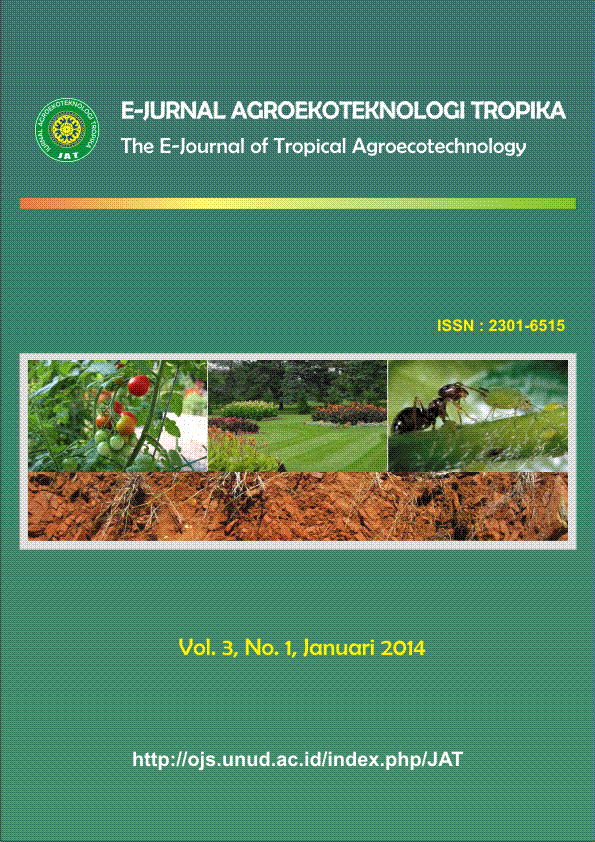Study of Some Weeds Extract to Control Root Knot Nematodes Meloidogyne spp. on Tomato Licopersicum esculentum Mill
Abstract
ABSTRACT
Study of Some Weeds Extract to Control Root Knot Nematodes Meloidogyne spp. on Tomato Licopersicum esculentum Mill
Root knot is the disease that caused by root knot nematodes Meloidogyne spp. Nematodes growth on the roots of plants that clog nutrients and water , blockage will cause impaired photosynthesis process of plants and plant nutrient deficiency symptoms are visible. This research using kirinyuh weed (Chromolaena odorata), kerasi weed (Lantana camara), babadotan weed (Ageratum conyzoides), alang- alang weed (Imperata cylindrica), and semanggi weed (Marsilea crenata) with a rate of 1:10 where the extract used is 250 cc of each extract weed liquid. The result of nematode population per 300 g of soil showed babadotan extract can suppress nematode populations Meloidogyne spp. only about 13 pcs/300 g soil, with the percentage of 97.4 % suppression, next is kerasi extract 19 pcs/300 g soil (96.2%), kirinyuh extract 19 pcs/300 g soil (96.2%), alang-alang extract 20 pcs/300 g soil (96%), and semanggi extract 37 pcs/300 g soil (92.6%). The result of nematode populations per 1 g of root, kerasi extract is the best suppress root knot nematode populations, there are only 37 pcs/ 1 g roots, with an emphasis percentage of 92.6%. next kirinyuh extracts 40 pcs / 1 g roots (92%), alang-alang extracts 54 pcs/ 1 g roots (89.2%), semanggi extract 60 pcs/ 1 g roots (88%), and the last is the babadotan extract 70 pcs/ 1 g roots (86%) .
Keywords: Ageratum conyzoides, Chromolaena odorata, Imperata cylindrica, Lantana camara, Licopersicum esculentum Mill., Marsilea crenata, Meloidogyne spp..



